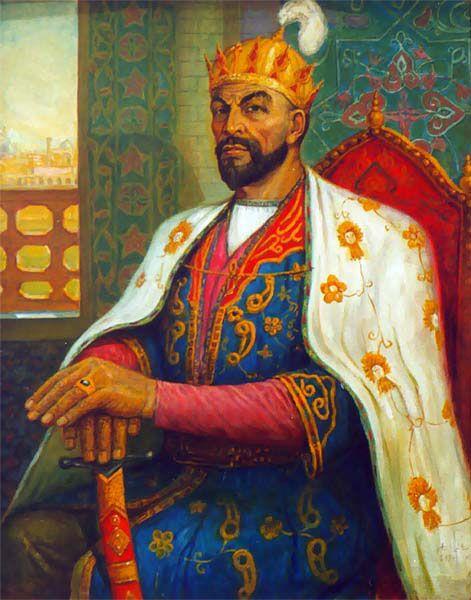
Amir Temur: Military Genius & Founder Of Timurid Empire
By Adkhamjon Janobiddinov
Renowned as“The Sword of Islam”, the military genius and the founder of the Timurid Empire, Amir Temur, was born on April 9, 1336, in the ancient city of Kesh.
His mother was Tegunabegim, and his father was Amir Taragay. Actually,“timur/damir” stand for“Iron” in Turkic languages. Not much information is available today about Temur's childhood, however, famous Arab philosopher Ibn Khaldun said that Amir Temur was fluent in Arabic, Turkic, and Persian languages and was aware of many various sciences when he was young.
He is described as an intelligent man and also a great lover of art, including architecture and gardening. He loved to play chess, and also invented a more elaborate form of the game where twice the standard numbers of pieces are used on a board consisting of 110 squares. Nowadays, we call the game Tamerlane Chess.
Historians divide Amir Temur's life into two parts.
Finishing the dominance of Mongols in Central Asia and building his empire, making Samarkand the capital of the empire.
His military campaigns to other countries. He built a big empire that bordered China to the East, the Mediterranean Sea to the West, and India to the South.
During his rule, he kept the caravan routes safe and let foreign and local merchants sell their goods without any danger or pressure. Furthermore, he ordered to build defense walls and water reservoirs, and open markets across the empire. Mosques, madrasahs, and other constructions that were built during his era still exist in ancient cities like Samarkand and Shakhrisabz.
One of them is Bibikhanum Mosque. Once it was the biggest mosque in the world. The construction of the mosque started in 1399 after Amir Temur's successful campaign to India and was completed in 1404. The most talented painters, architects, and craftsmen were brought to Samarkand from all over the Timurid Empire to build this enormous mosque called in the honor of his wife Bibikhanum.
Many historians say that Amir Temur respected and supported scientists. He even wrote a book called“Temur Tuzuklari (Rules)”. Famous French historian L. Lyangle wrote that his opinion about Amir Temur had changed a lot after reading his book in French and realizing that Temur was a very wise person, a great commander. He considers the book a great heritage for Temur's generations.
When it comes to his relations with European countries, he had good diplomatic relations with them, letters from French and English kings could be evidence of it. Notes of Gonzales de Clavijo, Ambassador of Henry III to the Timurid Empire, speak about Samarkand and diplomatic relations between the two states. Many people believe that he played an important role in the development of European countries.
Amir Temur died in 1405 in Utrar during his campaign to China and he was buried in Samarkand. After his death, his sons came to power. Today, Amir Temur is the symbol of braveness and justice for many people and his heritage still fascinates the world!
---
Follow us on Twitter @AzerNewsAz
Legal Disclaimer:
MENAFN provides the
information “as is” without warranty of any kind. We do not accept
any responsibility or liability for the accuracy, content, images,
videos, licenses, completeness, legality, or reliability of the information
contained in this article. If you have any complaints or copyright
issues related to this article, kindly contact the provider above.


















Comments
No comment